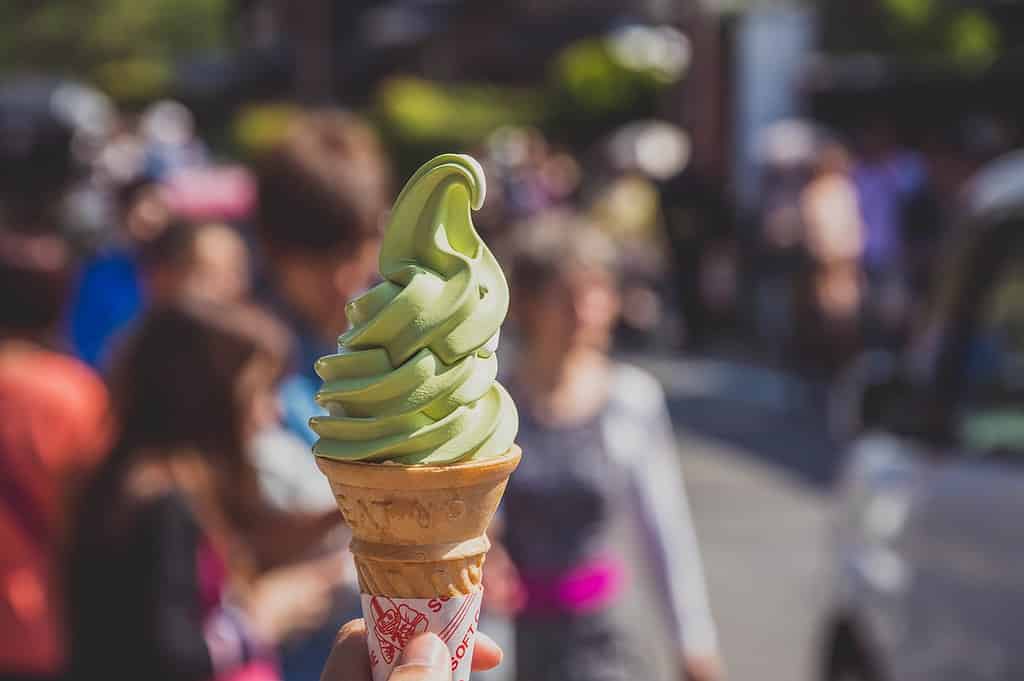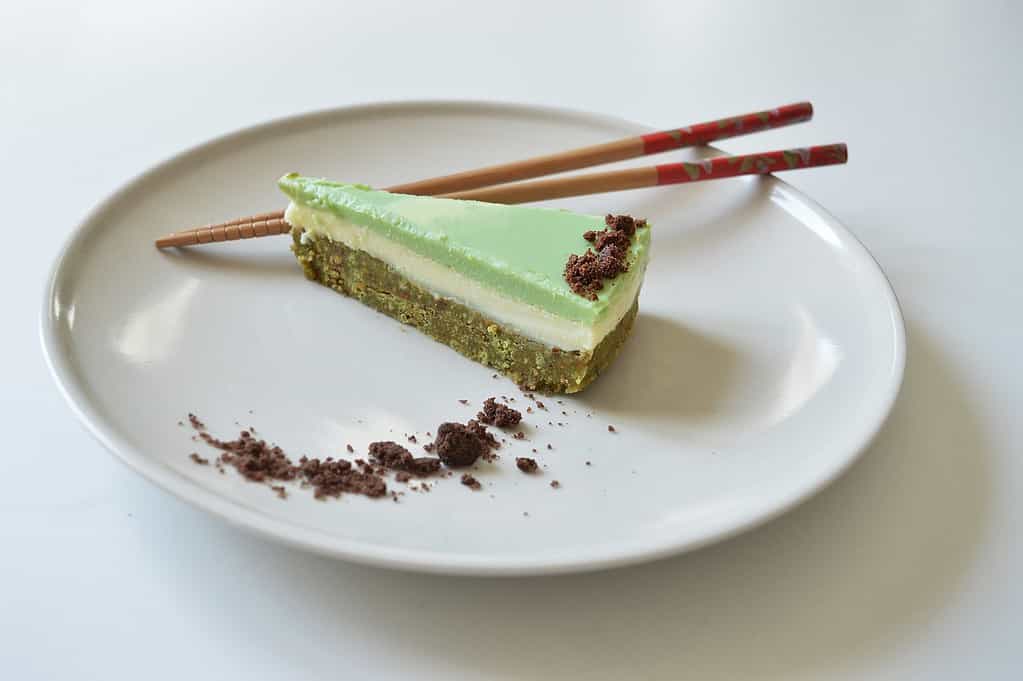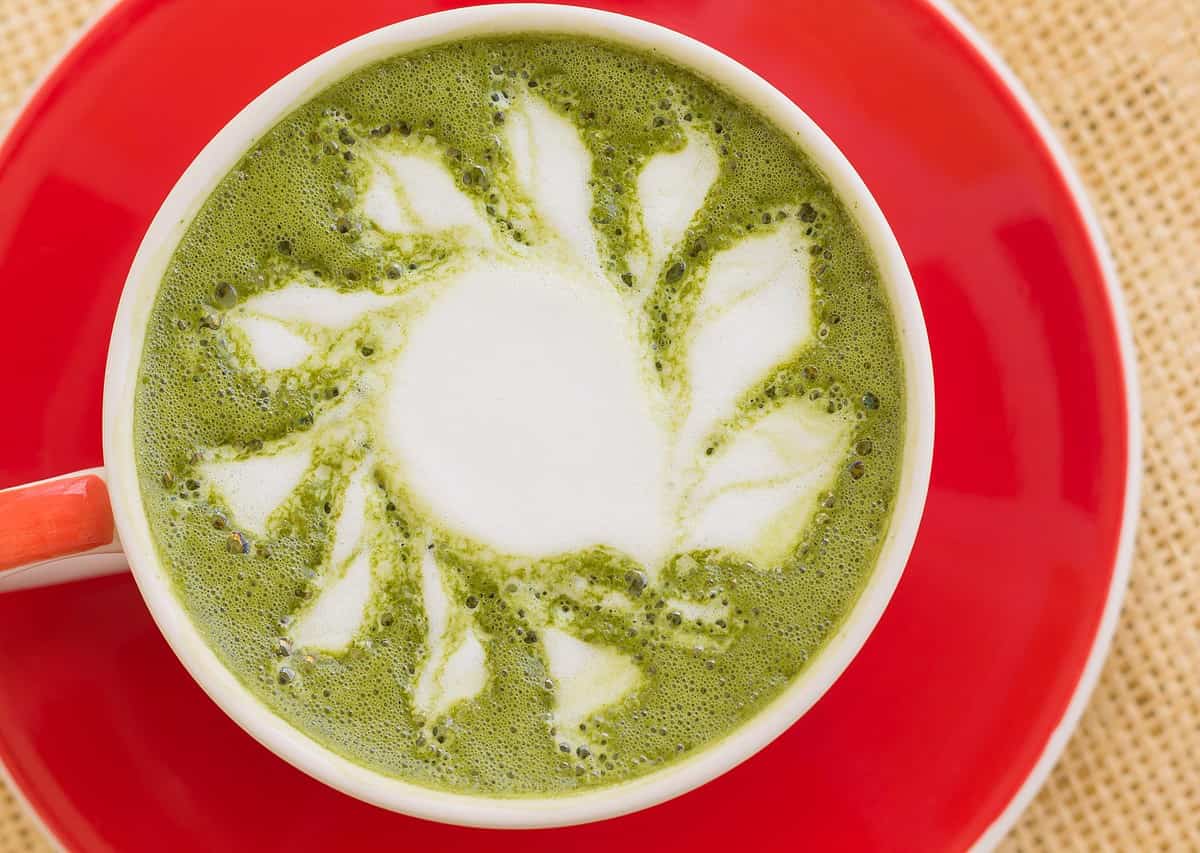Konnichiwa! Let’s delve into what matcha tea tastes like, drawing relevant comparisons to other foods and tastes. We will also uncover the rich history of matcha tea and its significance in Japanese culture. So, grab a cup of matcha tea and join us on this delightful adventure!
Explaining The Taste of Matcha Tea
A Velvety Smoothness: Imagine a drink that feels like velvet on your palate. Matcha tea has a luxurious, creamy texture that coats your mouth with every sip. It possesses a unique smoothness that sets it apart from other types of tea. As you savor this bright green elixir, you’ll experience a velvety richness that is both soothing and invigorating.
A Balance of Sweetness and Bitterness: The flavor profile of matcha tea strikes an exquisite balance between sweetness and bitterness. The first sip reveals a subtle sweetness reminiscent of freshly cut grass or steamed greens. This natural sweetness, often described as “umami,” is one of the defining characteristics of matcha tea. As the initial sweetness dissipates, a gentle bitterness lingers on the palate, leaving a refreshing and cleansing sensation.
Earthy Undertones: To truly understand what matcha tea tastes like, one must appreciate its earthy undertones. The flavor profile of matcha derives from the leaves of shade-grown green tea plants. These plants are carefully cultivated to enhance the production of chlorophyll and amino acids, resulting in the tea’s vibrant green color and distinct flavor. The earthiness of matcha tea can be likened to the taste of freshly harvested vegetables or a hint of moss in a tranquil forest.
Delicate Astringency: In addition to its sweet and earthy notes, matcha tea carries a delicate touch of astringency. This quality adds depth and complexity to its taste profile. Similar to the sensation you experience when enjoying dark chocolate or red wine, the astringency in matcha tea awakens your taste buds and provides a lingering sense of depth.
Origins and Significance of Matcha Tea
A Tale of Zen and Tradition: The history of matcha tea is deeply intertwined with Japanese culture and the art of tea ceremonies. Matcha was first introduced to Japan in the 12th century by Zen Buddhist monks who brought back tea seeds from China. Over time, the cultivation and preparation of matcha tea evolved into a meditative ritual, emphasizing mindfulness, simplicity, and harmony. Today, matcha tea remains a symbol of tranquility and spiritual connection.
Uji – The Birthplace of Exceptional Matcha: When pondering where matcha tea is most common and famous in Japan, one cannot overlook Uji. Located in Kyoto, Uji has been renowned for producing some of the finest matcha for centuries. The region’s fertile soil, mild climate, and pristine water sources create an ideal environment for cultivating tea plants. Uji matcha is highly regarded for its exceptional quality and is often used in traditional tea ceremonies.
In Kyoto, matcha is not only enjoyed as a beverage but is also deeply woven into the fabric of the city’s culture, with tea ceremonies and matcha-infused culinary delights taking center stage. Visiting Kyoto offers a unique opportunity to immerse oneself in the world of matcha tea, savor its delicate flavors, and appreciate the centuries-old traditions that surround this beloved green drink. If you are visiting Kyoto, consider a Kyoto Tea Ceremony & Kiyomizu-dera Temple Walking Tour by MagicalTrip.
Matcha in Modern Japanese Culture: While matcha tea has deep historical roots, it has also gained popularity beyond traditional tea ceremonies. In Japan, matcha is not only consumed as a hot beverage but also used as a flavoring in various culinary delights. From matcha-infused desserts like mochi and green tea ice cream to matcha-flavored Kit Kats, the vibrant green tea has found its way into contemporary Japanese cuisine, adding a touch of elegance and richness.


Summary
Matcha tea offers a sensory experience that tantalizes the taste buds with its velvety smoothness, delicate sweetness, gentle bitterness, earthy undertones, and subtle astringency. This vibrant green drink, with its rich flavor profile, provides a harmonious balance of sensations. As you sip on a cup of matcha tea, you’ll be transported to the lush tea fields of Uji, where the art of tea-making is cherished, and the history of matcha tea is deeply rooted.
Whether you appreciate matcha tea for its cultural significance, health benefits, or simply the pleasure of its taste, this centuries-old beverage continues to captivate and inspire. So, the next time you find yourself pondering, “What does matcha tea taste like?” embrace the opportunity to embark on a delightful adventure of flavors and immerse yourself in the world of matcha tea. Arigatou gozaimasu!

